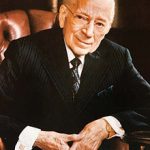Introduction
Neither male or female same-sex sexual activity is specifically prohibited in Mali, but public laws may be used against LGBT persons. According to the 2007 Pew Global Attitudes Project, 98% of Mali residents said that homosexuality should be rejected by society, making it the highest rejection of homosexuality in the 44 countries surveyed. (http://en.wikipedia.org/wiki/LGBT_rights_in_Mali)
US State Department Human Rights Report for Mali (2010)
http://www.state.gov/j/drl/rls/hrrpt/2010/af/154357.htm
In Mali, there were no publicly visible lesbian, gay, bisexual, and transgender (LGBT) organizations in the country. The free association of LGBT organizations was impeded by a law prohibiting association “for an immoral purpose”; in 2005 the then governor of the District of Bamako cited this law to refuse official recognition to a gay rights association. Although there was no official discrimination on the basis of sexual orientation, in practice, societal discrimination was widespread.
Societal discrimination against persons with HIV/AIDS occurs. The government implemented campaigns to increase awareness of HIV/AIDS and reduce discrimination against those with HIV/AIDS.
Presented here are six stories that portray a mixed picture of gay life in Mali. For most the secret of survival is just that–secrecy. Keeping very private and silent, underground except among close trusted friends, is the only way to stay healthy and accepted in the society. The price of being found out is revealed in stories four and five where a ‘married’ gay couple were severely harassed and injured when word got out about their relationship. However, story six tells a different story about lesbians being more courageous and defiant in Mali.
(1)
Homophobia drives Malian MSM Underground
Behind the Mask
April 4, 2011
By Jerina Chendze Messie
Malian men involved in same sex practices say that the blatant homophobia, deeply rooted within the Malian society, the stigmatization and abuse towards Men who have Sex with other Men (MSM) makes it difficult for them to live their lives freely and to express their sexual orientation.
36 year old Madou S* from Mali says he always has to be on the guard, ensuring that no one ever finds out that he is involved in same sex sexual practices. “I have to be very discreet so that no one can ever find out. It is even more complicated for me because I am married and sometimes it is just too much stressful to try and hide my MSM life .”
Although there is no law that specifically criminalises homosexuality in Mali, religion and ancestral traditions still play a huge role in the country’s society and same sex practices are highly condemned and seen as immoral and evil acts by the vast majority of the population. The slightest suspicion can lead to one being ostracized and can ruin their life which has resulted in MSM being forced to date females in order to comply with moral and social values.
Junior M*, another Malian MSM says, “Personally I don’t have any problem because I am very discreet. But before I had to date girls and have casual same sex relations in the sly in order to keep up appearances. But even when you are very discreet, if there is the slightest suspicion, people will verbally or physically abuse you everywhere, at school, in the street and mostly in your family.
Model T. an accounting student agrees and reveals that at a young age he was often beaten up by his brothers and uncles who had suspicion about his sexual orientation. “It was difficult for me mostly with my family and until today some of them don’t speak to me. I was also abused by my heterosexual friends at school. Malians in general are very homophobic and treat homosexuals like dogs”, he says.
21 year old Papicha D. who is also involved in same sex practices states, “so far my sexual orientation has not been an issue because none of my relatives or friends know about it. But as soon as people find out it will be disgrace and dishonour for me and my family.”
The patent homophobia in society also deprives MSM of access to HIV/AIDS and STI prevention and health care. In April 2009 a workshop on HIV/AIDS and homosexuality organised by ARCAD/Sida, an HIV and AIDS organisation based in Bamako, had to be cancelled following protests from the general population.
“They made such a fuss about this, accusing the organisers of trying to lure teenagers into homosexuality, as a result we had to cancel the workshop. Today we try to run our activities more discreetly, we are flying under the radar. Recently we were invited to join Africa gay, a network of LGBTI organisations that fight against HIV and AIDS but we had to decline this opportunity for fear of protests by people. As a result we are not always informed of different projects or initiatives related to the fights against HIV and AIDS. Within a network you share experiences, information, advices”, says one MSM who works for an HIV and AIDS who chose to remain anonymous.
This situation also makes it difficult for MSM to organise themselves or to manage projects that are intended for their community.
(2)
A Lesbian Peace Corps Volunteer in Mali
July 30, 2010
Contact the writer at: lgbrpcv-news@lgbrpcv.org
gbrpcv.org/category/countries-of-service/mali/
Gay rights in Africa have been in the spotlight lately with the male couple in Malawi who were convicted and then pardoned on June 1, 2010 for taking part in a same sex engagement ceremony, and in Uganda where they are currently debating anti-homosexuality legislation. Almost two years ago when I received my assignment to be a Peace Corps volunteer in Mali, West Africa, I started doing some research on African Gay rights. What I found was a little scary. Most countries in Africa, 38 to be exact, have laws against homosexuality and some with the death penalty. Mali as far as I can tell doesn’t have homosexuality on the radar yet.
I looked at the legal status of homosexuality in Mali such as legal age of consent, and laws covering homosexual activity. The relevant section of the Malian Penal Code reads “Mali 1981: Article 179 – Sexual Offence, Public Indecency: Three months to two years of prison and a fine of 20 000 to 200 000 francs.” After reading this I breathed a sigh of relief.
Next I Googled Gays in the Peace Corps and got 33,700 results. I found the LGBT Peace Corps Alumni website (where this article now appears) with a lot of helpful information (http://www.lgbrpcv.org).
When I received my Mali Peace Corps welcome book the contents seemed a mixture of good news and not so good news. The good news was that Gays were on the Peace Corps Mali staff’s radar because they included a paragraph on Gays and Lesbians as part of Peace Corps Mali’s diversity. The not so good news was the dress code which states that women should wear skirts. Well I am a fem and even though I don’t wear dresses very often it sounded OK. Then two friends of mine said they would never go to Mali with the Peace Corps because they would never wear skirts. This started me thinking how much else of myself would I have to give up.
During the two and half months of language, cross cultural and technical training I was out to most of the volunteers but not the Malian staff. This invoked many interesting questions from volunteers like why I had a daughter who is 24 yet I had been out of the closet for over thirty years. There were a lot of questions about my partner of 15 years and how I could leave her to do Peace Corps.
As liberal as the Peace Corps is, they didn’t allow same sex partners to serve as a couple. Matter of fact Peace Corps changed their definition of marriage shortly after the Massachusetts Supreme Court granted the right for same sex marriages there. The policy change went from identifying married couples according to the laws of the different states to defining a married couple as a union between a man and a woman.
Earlier this year my partner’s mother became ill and she was told that her mother would not last long so she went back east to be with her. Peace Corps does have a family emergency policy for volunteers so I called the Country Director (CD) to see if those policies included domestic partners. My partner and I have been registered with King County as domestic partners for 15 years.
The CD said he needed to call Washington DC and would get back to me by the end of the day. Several days later he called and apologized for net getting back to me sooner but the question had gone all the way to the legal department. He explained that while the Peace Corps staff was granted some domestic partnership benefits similar to those granted overseas State Department staff by Secretary of State Clinton, those benefits had not yet been extended to volunteers.
Peace Corps’ non discriminatory policy reads: “An important part of the Peace Corps’ mission is to promote a better understanding of Americans and our multicultural society in the countries where our Volunteers serve. Therefore, the Peace Corps places a high priority on expanding diversity not only among our Volunteers, but also among our staff members. The Peace Corps actively seeks to hire employees regardless of their race, color, religion, sex, national origin, age, disability, sexual orientation, or political affiliation. Our goal is to ensure that Peace Corps employees, Volunteers, and programs reflect and benefit from the diversity of the American people.”
On Peace Corps’ website this is the support and encouragement given to GLBT people: “Homosexuality is considered socially unacceptable or even illegal in some of the countries where the Peace Corps has programs. Moreover, Volunteers are subject to the laws of their country of service. Those realities can create special challenges for Peace Corps Volunteers, and Peace Corps has taken steps to address those challenges. During their three-month training process, new Volunteers take part in diversity training sessions, and many Peace Corps posts offer peer support networks for Volunteers. Volunteers learn techniques to manage cultural differences and are encouraged to support one another.”
It’s true the acceptance of GLBT people world wide is a cross cultural experience. I have been to gay bars in Germany, Cuba, Mexico and several other countries. When I traveled in Vietnam my partner and I were sure that one of our tour guides was a lesbian and we found several articles on gay men in Vietnam.
Mali is different in that it is Muslim, less developed and very isolated from the rest of the world. What has helped me is talking regularly to friends and family back home. The people here in Mali have found their way into my heart. The fact is that men and women in Mali don’t socialize together very much. So my hi-light has been dancing with women at weddings while the men are all sitting off somewhere doing what ever it is they do.
As a Small Enterprise Development volunteer I feel like I have made a difference. My three major projects have been product development with a bogolan (a traditional woven textile) Malian association, literacy classes for artisans and teaching junior achievement in three schools. The bulk of my work has been with women artisans. Over the thirty some years I have been out of the closet I have met many challenges because of my sexual orientation and I don’t see that changing any time soon. Peace Corps has been an amazing experience for me and I don’t regret the decision at all.
(3)
Stirring It Up in Mali
May 4, 2003
Ben Kudler, Peace Corps HIV/AIDS Volunteer
Ben Kudler can be reached at bekudler@yahoo.com.
gbrpcv.org/category/countries-of-service/mali/
Despite the obvious inequality between men and women in Mali, I am constantly charmed to see two men holding hands, hugging, or cuddling on a woven mat, or to find two women cradled together, braiding hair for hours, laughing and caressing. While gender codes are as fixed as in the States, I find them to be a bit queered: Malian men are physically affectionate with each other, can be seen giggling with babies bouncing on their laps, and dancing in pairs; women form bonds that are (dare I say) stronger than the ones they have with their husbands.
Adrienne Rich would be thrilled – the lesbian (and gay) continuum is in full array here, in a culture where heterosexual marriage functions mainly to produce field hands, and love knows very flexible gender boundaries.
In my everyday, I like to indulge in these new and somewhat crossed (from western ideals) gender definitions. I find myself playing with gender just because I can: wearing eyeliner like David Bowie or Boy George, flaunting ridiculously garish hot pink frilly African garb, and painting my host brother’s fingernails fuchsia as Bob Marley wails “Stiiiir it up” on the radio. These moments of cross-cultural exchange provide serendipitous opportunities for Malians to question the ways they think about gender, and moreover how they love and treat each other.
During our pre-staging, I was warned that men were not allowed to wear earrings in Mali. After noticing several Malian men wearing earrings (perhaps to emulate American hip-hop/pop icons) during my homestay, I quickly slipped mine back in. The response is generally neutral, sometimes quite positive, and I’m happy to have my earrings back, as they feel like a part of me.
During my first few weeks at site, and today walking down the streets of Bamako (Mali’s capital city), I sometimes hear people exclaim, “Ehhhh?! Man or woman?” When I’ve taken the time to explain that men in America are able to wear earrings, and that it pleases me to do so, Malians are intrigued. I can then transition into other gender issues: in America, women and men can do the same work, men are not allowed to beat women, and in romantic relationships and marriage, both women and men can choose whom they want to be with.
Sometimes, I explain, men and women don’t marry at all! Mentioning the option to choose a lover based entirely on love and choice is the closest I’ve come to broaching gay and lesbian issues (although I always mention same-sex intercourse during my HIV work).
Unfortunately, Malian culture doesn’t seem quite ready to talk bluntly about sexuality. After I present all of these cultural differences, I usually get a little laughter and sometimes a small lecture on Malian customs. I’ve found that engaging your average Malian on the street can provide just the right kind of captive audience to get some balls rolling for reflection and possibly change.
I am happy to have found my own way of getting people to question their own beliefs and behavior: this is why I came to Mali, and why I do HIV/AIDS work. Fortunately, while I wait for Prince Charming to ride into town in his air-conditioned Land Cruiser bearing flowers and Knorr sauce packets, I feel comfortable exploring and expressing the affection and camaraderie I feel toward other men, play with kids, and do other “girly” stuff without stigmatization. (Read full story)
(4)
Mali Gay Man is Rejected by his Family
August 1, 2005
by Par Jean -Luc
Behind the Mask
In Mali a gay man was beaten by his family and subjected to the abuse of a “fetish” to cure him of “bad luck.” He was also hospitalized in a psychiatric hospital, prohibited from going to a mosque, and arrested several times on the grounds of incitement to debauchery and immoral acts.
The poor man now has the problem to re-integrate into society, go to the mosque to pray, or visit family because of his sexual orientation. Now he seeks refuge in countries that can accept that and live in peace. The family has rejected him instead of offering support.
We see these cases especially in Muslim countries such as Mauritania, Sudan, Nigeria where they do not respect the law of man or nature. In these countries homosexality is a crime punishable by death.
An example comes from Nigeria, where last month the Islamic court in Katsina, northern Nigeria, sentenced to death by stoning Yusuf K. Usman for sodomy. The two men were arrested by police following a termination without a witness in the court by the prosecution. While two Iranian teenagers have just been hanged for the same offense.
(5)
Homophobia: Senegal Gay Couple Persecuted by the Population in Mali
April 24, 2008
Rewmi.com
http://www.rewmi.com/Homophobie-Persecutes-par-les-populations-au-Mali-Ousmane-Cisse-et-Jonas-tentent-de-se-suicider_a9728.html
A gay couple in the town of Mbaye expereince a hard time because of the homophobia to which they are subject. Indeed, they fled Senegal to find peace in Mali. The gay couple, Ousmane Cisse and Jonas, who had celebrated their marriage in Petit Mbao, have been persecuted so much that they tried to commit suicide, it is reported.
Homophobia continues for the gay couple from Mbaye. Their friends who had celebrated their same-sex marriage in Petit Mbao, Ousmane Cisse and Jonas failed to end their lives yesterday in Mali. Indeed, this is the land of our president Amadou Toumani Toure where those known as “spouses” sought refuge. It was for the purpose of finding peace which they sought in vain in Senegal.
But in the land of the ‘njatiguya’ (Mali tribe?) their stay was not as calm as they would have wished. Here they have indeed been seriously persecuted to the point of wanting to commit suicide. The time spent by these unfortunate homosexuals had the distinction of causing a commotion in the homosexual community. In the group of the gay party taking refuge in Mali, we also note the presence of a certain Ngalla Omar and Mr. Diallo Maguèye, who are from the region of Thies in Senegal.
The persecution of homosexuals in Mali coincides with the burning of the house of their friend Serigne Mbaye. An incident that was reported in the press the day before yesterday. The latter’s son is the subject of an arrest. He is alleged to have retaliated on arsonists who wanted to destroy the home of his father.
A few weeks before, in the Daily No. 1571, it was reported violence was inflicted on members of the gay community at Mbaye in the south. They had left the Senegalese capital to hide in Ziguinchor. And here it was in the house of a certain Idy Diédhiou that homosexuals had taken refuge to escape the fury of the people of Dakar. All homosexuals found at the scene were injured, one seriously injured by the name of Lamine Fall. He was sent to Dakar to the General Hospital for emergency care.”
(6)
Time for Lesbians (Out and Proud)
L’Essor–Quotidien d’information du mali (Daily news of Mali)
http://www.essor.gov.ml
April 20, 2007
(Translated from French)
Our interlocutor took the plunge last 4 years. She currently attends to a in a neighborhood of Medina. The two girls met at a wedding ceremony and since it is the romance. They go everywhere together and behave like a real couple without paying attention to insults and taunts against them in all day long.
KS was drawn to the masculine look of her girlfriend. It was she who plays the male role in marriage. As KS and his girlfriend say, Bamako is full of lesbians couples. If some girls become lesbians to meet their fantasy, others by cons, out of necessity. Because the environment is conducive to making fast money. Some others sway to gay under the influence of their friends.
This is the case of HD. The student has left to stay by her friend Fac. “When we met at the university, I did not know that she was a lesbian. But over time, I noticed because she kept telling me she’s never dated a boy “she said. HD’s girlfriend who has always maintained that men do not interest her finally confessed that she is part of a network of homosexuals. HD was persuaded by her friend to enter the lesbian network. She rolls on a motorcycle named ‘Jakarta’ which is shared with her friend. “I am dependent on her and we really like it. She made me who I am today. I have nothing to envy to anyone” she confesses with a smile. HD has no plans to separate from her girlfriend.
HT is also a lesbian and she does not hide it. She could not care of the less jeers of her neighbors in the neighborhood. “I chose to be a lesbian and no matter what people may think of me,” she said. She also acknowledges that her parents are ashamed of what she is.
The case of AS is rather true. She currently lives in concubinage with her girlfriend. “I left my family to move in with my partner. It is there that I find fun,” she says, adding that her family is still opposed to her choice. Yet she is determined to spend the rest of his life with her concubine.
The history of ZT is no less true. This daddy’s girl became lesbian because she could not bear to be deceived or abused by men. “I lived with a man who mistreated me, although I took care,” she says. It was during one of his many outrages that ZT met her current partner. She currently lives in perfect harmony with it. ZT goes further. She urged the authorities to legalize the situation of lesbians in order to make them free from threats and taunts. “Why they do not allow us to get married to form a normal couple” asks she.
Some people are appalled by the rise of the lesbian phenomenon in Bamako. Condemning the fact that these “homos” are quick to kiss and fondle in public in some places. They do not shy and do not hesitate to chat up other girls. AG complains of being harassed by a lesbian. “She initially wanted me to be her friend. I refused the offer. After she started sending me text messages with pornographic images and offer me gifts. Then I realized the game, and I did not hesitate to send for another photo, “she recounted.
Modibo Keita (Marxist first president of Mali) would think our society can not tolerate “this shameless practice which unfortunately takes momentum in the country.” He blamed especially parents of lesbians who failed to properly educate their offspring.
Astan is more categorical. She believes that lesbianism should be punished. “These girls have no shame and deserve a good hiding” is offended does. As for Hamidou Koné, he will not even hear about lesbians.
Also see:
http://archive.globalgayz.com/africa/mali/gay-mali-news-and-reports/
















